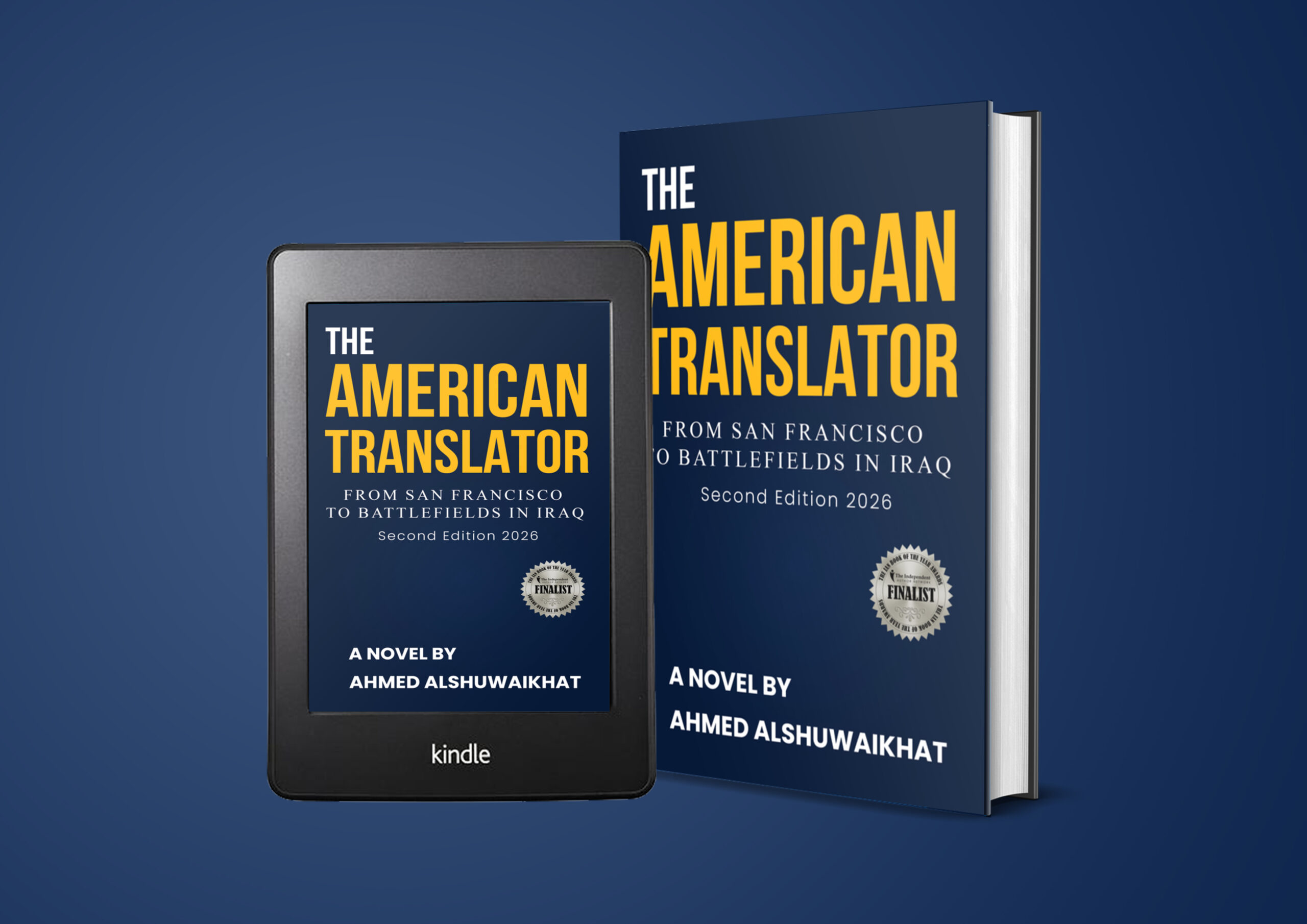THE AMERICAN TRANSLATOR
From San Francisco to Battlefields in Iraq
Second Edition 2026 – A finalist in the Independent Author Network (IAN) Book of the Year Awards 2025 and long-listed in Katara Prize for Arabic Novel 2023.

About the Novel
About the Novel
This novel doesn’t recount a bygone Gulf war; rather, it explores enduring cross-cultural issues that persist and escalate, posing existential questions about self and others.
The artistic whims and rampant curiosity of David Boccaccio drive him to join the American army in war-torn Iraq as a translator. There, he is destined to go through mysterious events and face one enigma after another. Here is his story and the stories of his family and the people he loves in the U.S.A., Iraq, and other places. A literary fiction, history, adventure, mystery, thrill and beyond.
Awards & Recognition
Finalist
Independent Author Network (IAN) Book of the Year Awards 2025
Long-listed
Katara Prize for Arabic Novel 2023